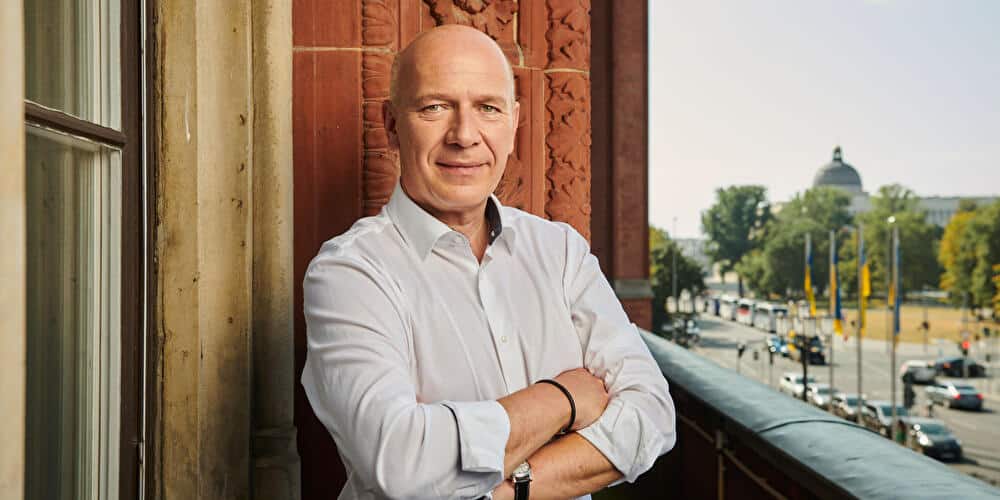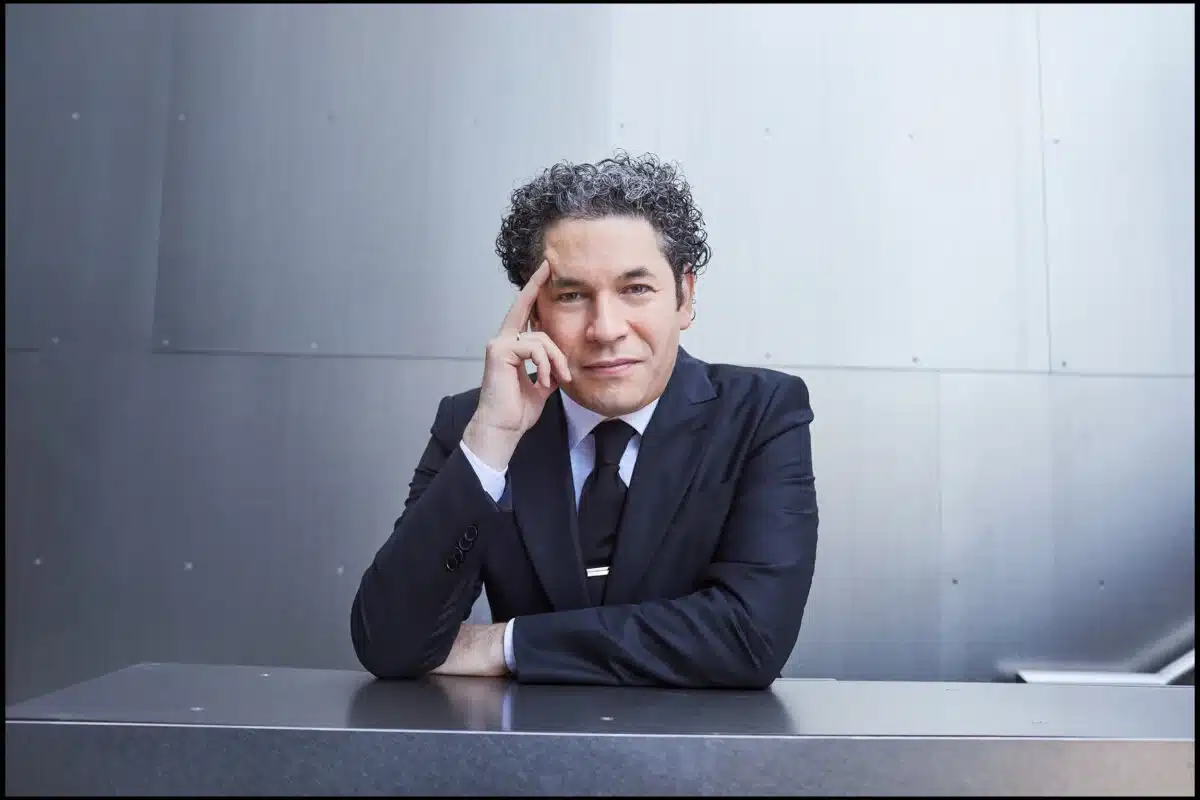Trumpist mayor scolds Berlin’s needy opera houses
OrchestrasBerlin Mayor Kai Wegner of the CDU is not hardening his plan to cut 12 percent from the city’s art spend.
He says: ‘I think we have to get away from the mentality of ‘we need money from the state’. I also expect our theatres and opera houses to explain exactly how they can operate more economically and with their own resources. This is a task that applies to all of us – regardless of which area we work in.’






Has anyone ever seen him at the opera or theatre?
https://www.bbk-berlin.de/en/kalender/trauermarsch-vom-neptunbrunnen-zum-brandenburger-tor
This is in very stark contrast to a deeply-ingrained national identity component: Germany as a cultured nation, ‘Kulturnation’, which has long roots in history. Cultural institutions like theatres, opera houses and orchestras, have been considered state enterprises for at least some 150 years, to ensure their preservation as part of the common good. If officials in Germany are now openly rejecting that notion, it means a sign of psychological and cultural bankruptcy, and serious decline.
Shouldn’t Germany spend more on its poor immigrants from Africa and the Middle East than on white supremacist old art forms like opera?
No, in Europe it is normal that the local high art cultural institutions remain intact, in spite of terrible economic conditions in other continents. In the same way, it is normal that in countries like India the traditional culture remains in place, in spite of the slums. By the way, in Europe there are no slums.
There are plenty of slums in Europe.
Germany was anything but a ‘Kulturnation’ from 1914-1918 and from 1930 to 1945. Hugo Boss designed the uniforms of its military elite and Wilhelm F conducted for them and the Fuhrer, but that was the extent of it.
Again the same old story, as if German culture merely consists of nazis.
Some reading may reveal that there has been an entire history before 1914, and that there has been an overwhelming mass of cultural and scientific achievements that the German lands have given to the world.
So you think the whole nation can flip over instantly? This is easy for some individuals (Hillary Clinton did this like 25 times before I lost count), but it is unlikely that millions of people would undergo such sudden changes back and forth.
there is a lot of truth in it
‘I think we have to get away from the mentality of ‘we need money from the state’.
I think these corrupt-closeted green/leftist-radical pseudo-politicians need to get away from the mentality of ‘we need money from the people by taxing them to death, like with a tax on air’
Co2 tax, yes people, that’s a real thing guys, a tax on AIR.
The critical thinking you exercise on issues like climate change is in fact an agenda pushed on you by major oil companies
Uh-oh, big mystery uncovered – most of the “cLimAte cHanGe” “studies” were funded by oil companies
The critical thinking you exercise on issues like climate change is in fact an agenda pushed on you by major oil companies
We heard you the first time. You were wrong then and you’re wrong now.
It is not a tax on air. It is a tax on industrial emissions that damage the biosphere, ultimately poisoning it. (At levels of 1000 ppm or more, CO2 degrades human cognitive function. We are at 419 ppm now, increasing at 2.8 ppm/year [2022-23 year on year], and still accelerating. We could reach 1000 ppm in a century or so, by which time other forms of environmental damage will have become catastrophically severe. Our grandchildren will not be thanking us.)
Carbon Dioxide is not a “poison”. It is essential for all plant life, and it is crazy to think that it somehow harms humans. Our bodies are very efficient at dealing with it.
It’s a matter of balance. There is too much CO2 in the atmosphere.
Even my PA can smell that, she says.
Listen up, all you liberal snowflakes and leftist charlatans: You can argue all day long about global warming being real, using whatever so-called “facts” or “science” or “verifiable record temperatures” or “rising sea levels” you want. You can deny the fact that 99% of all pseudo-scientists and conspiracy experts believe that climate change is a hoax. You can deny the fact that what most people call global warming is really just a harmless part of the natural cycle leading up to the inevitable heat death of the universe. You can deny that maybe it’s just really warm lately because some people (like my step-son Kevin) can’t seem to stop leaving the windows open while the heater is on. But at the end of the day, there’s one cold-hard fact even Bill Nye the quote-unquote “Science Guy” cannot deny:
Ice cream exists. It is here, it is real. Oh, and—by the way—it’s delicious.
All your “data” and “consensus” melt away when faced with the truth. Oh, it’s really warm lately? Well, scientifically, the heat melts cold things. So if it’s so hot, how am I able to hold a frozen vanilla treat in a styrofoam-flavored cake cone and somehow get brain freeze? I mean, it’s just common sense: Ice cream is cold; therefore, global warming is false.
Now, don’t get me wrong here. I’m not an unreasonable man. In fact, I’m completely open to the incredibly unlikely possibility that what I’m saying is incorrect. That’s why I’ll throw down the gauntlet here and now: If anyone can produce one single shred of evidence that ice cream does not exist, I’ll apologize. I’ll not only admit I’m wrong— I’ll pack it in, quit my day job, and pursue a new career as a hair model.
Ice cream. Does it exist? Yes or no? It’s a simple yes or no question. YES OR NO. I’ll wait.
Still trying to prove ice cream doesn’t exist? You can’t do it, can you? Because what the media elites don’t want the world to know is that ice cream does exist and that it stands like a soft-serve torch, lighting the way to the truth that no amount of science can ever deny: ice cream is fact, and global warming is fiction. That, my friend, is three scoops of cold, uncompromising truth. Sorry for the truth-bomb headache.
Mic-drop! Whoop, I dropped my dang ice cream.
guest1848
The sad thing is you will never know whether the thumbs up are climate change deniers and the thumbs down the educated minority. Many people thought Swift’s Modest Proposal was for real.
The inevitable response from the theatres, of course, will be to reduce the pay of the artists whilst hiring another marketing manager…
Cf Gilbert and Sullivan.
“I polished all the handles so carefully
That now I am the ruler of the Queen’s navy”.
They could hire donor and gift specialists like in the US. Works much better than state support.
That US money is tax money: it is just that the rich decide how it is spent rather than the decision being made by all voters like a normal democracy.
Unless I’m missing something, the argument is actually very simple. Opera, and to a lesser extent orchestral concerts, are intrinsically expensive and don’t lend themselves to amplification before an audience of 20,000 to 60,000 except in extremely limited cases.
I can think of four possible responses to this. State subsidy, private donations, slim down to the point when a performance is unrecognisable, or sink or swim.
Without some form of financial assistance, the genres will survive in a limited form but will only be accessible to people who can afford very high ticket prices. Some people would be happy with this situation, many wouldn’t. Countries need to decide one way or the other. The UK doesn’t even want to have the debate.
It’s not “some form of financial assistance” he’s talking about but the EXTENT of that financial assistance.
Since the arts are part of the common good, it is normal that the state secures their survival in a free democratic capitalist society. The costs of musical institutions can be covered by the state (basis security), sponsoring by the industries (social responsibility) and donors (music loving charities). Then ticket prices can be kept so low that halls will be accessible for most people.
The problem arises when politicians begin to meddle with content, and push the institutions towards commercialisation (langlangisation). Another problem arises when planners (under the cover of state security) present operas and orchestral works that are inaccessible or simply bad, but promise progress towards a dehumanised utopia.
German academics should take a look at the Dutch state support system for the arts, including new music and new visual arts, were on one hand existential support is continuously cut (orchestras, opera houses, museums because it’s all old fogey stuff), and on the other contemporary production is kept afloat through a system of ‘experts’ who happen to be themselves the happy beneficiaries of state subsidies and thus know exactly how the money is to be distributed. Audience attendance is surprisingly low but that does no longer matter.
Am I recalling correctly that the arts funding budget is being cut from €1.3 billion down to €1 billion? And that’s just from the city of Berlin?
From here in the States, that still looks very generous.
Opera houses around the world can operate more economically by hiring in-house set designers (like Thierry Bosquet used to do in San Francisco) and sacking woke positions such as ‘intimacy director’ and ‘DEI director’.
I would love to have an intimacy director here, it’s a boring job!
Sally